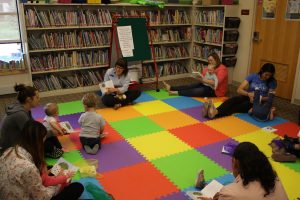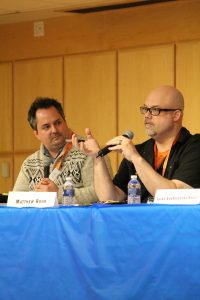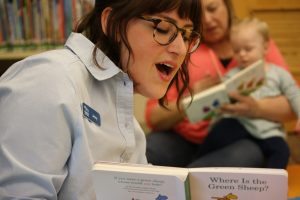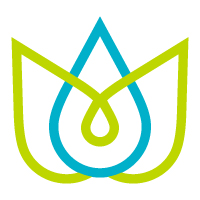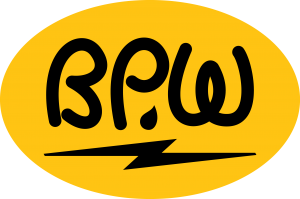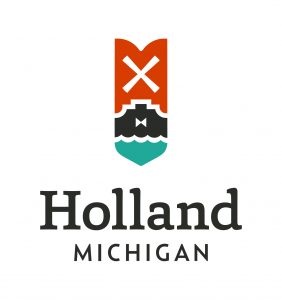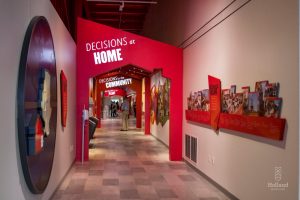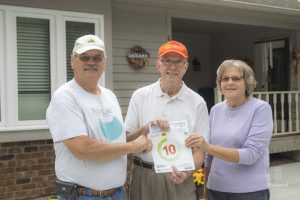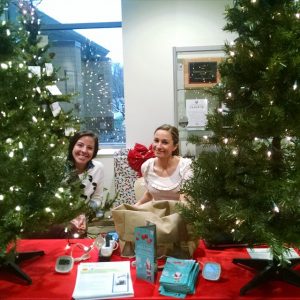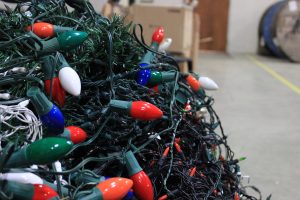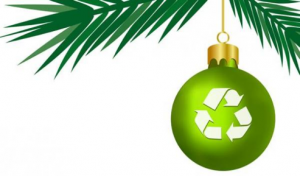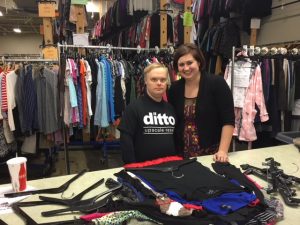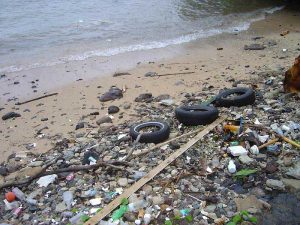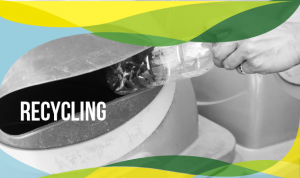By Peter Boogaart, City of Holland
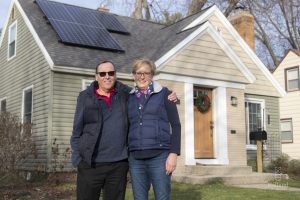
Roy and Mary Cole have a long-standing interest in energy efficiency. “We’ve always done what we could to help the environment,” Roy said. So, when they moved into their new home on 26th Street, they set about making it the best it could be.
The most obvious change is to the landscaping. Roy and Mary developed an eye-catching remake of all the gardens and beds. Not so observable, however, is the work that Roy did inside. He went to work on the attics and basement, sealing up air leaks and insulating empty spaces. “I want this house to be as energy efficient as possible,” he said.
After doing all he could by himself, Roy brought in the GreenHome Institute for an evaluation. GreenHome evaluated all the building systems and processed the data using the Department of Energy’s Home Energy Score system. The system scores a house’s energy efficiency on a scale from one to 10.
The Cole’s home rated an eight.
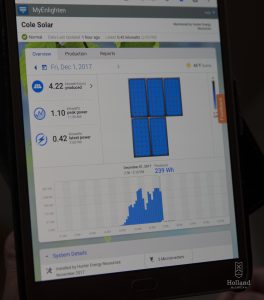
Brett Little, GreenHome’s director, then referred the Coles to the City of Holland’s Home Energy Retrofit Program. Brett knew that a score of eight was the qualifying level for solar panels in the Holland program. “It made sense to me,” Roy said. “I’ve always wanted solar panels and this was the chance.”
The Holland program covers 10 percent of qualified energy efficiency improvement costs.
The Holland program brought in additional professional help. Ver Wys Home Improvement, one of the authorized contractors, inspected the home and made recommendations to further improve the air sealing and insulation. Hunter Energy Resources came on board to install the solar panels.
The Coles are a first in Holland.
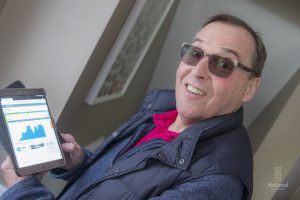
Homeowners working through the city and our residential energy advisor office have completed 78 projects so far, but the Cole’s project is the first using solar panels. An effective energy efficiency strategy moves through a series of steps. It is important in those steps to review all the home systems – air sealing, insulations, HVAC, hot water, appliances, lighting, and windows and doors.
Solar panels are considered only after doing everything possible through those previous steps to lower a home’s energy baseload. Solar panels are the icing on the cake.
In its Community Energy Plan, the City of Holland has a goal to become a world-class energy efficient city. Some 20 percent of energy used in the city goes into homes, and there is much room for improvement.
All residential property owners in the city, including landlords, are eligible to benefit from the expertise and rebates provided through the city’s Home Energy Retrofit program. Learn more at www.hollandenergyfund.com or call Holland Community & Neighborhood Services Department at (616) 355-1330.
Peter Boogaart is the residential energy advisor for the City of Holland and assists homeowners with energy efficiency issues.
![]() This Week’s Sustainability Framework Theme
This Week’s Sustainability Framework Theme
Smart Energy: We need to use both conservation and efficiency measures to manage our resources to provide access to reliable and cost-effective energy.
![]() ABOUT THIS SERIES
ABOUT THIS SERIES
Living Sustainably is a collection of community voices sharing updates about local sustainability initiatives. It is presented by the Holland-Hope College Sustainability Institute, a joint project of Hope College, the City of Holland and Holland Board of Public Works. Go to www.hope.edu/sustainability-institute for more information.


